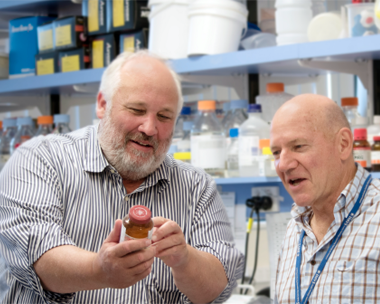Founded in 2012 in Adelaide, South Australia by world renowned breast cancer specialist Prof Stephen Birrell, Wellend Health has grown into a dedicated multidisciplinary team of health care specialists that work together to set a new standard of integrated patient care. Our focus is to deliver women with a one-stop-shop for their hormonal, gyanaecological and breast health needs.
We are committed to being at the forefront of modern medicine and collaborate with clinicians and scientists from around the world at institutions such as the Mayo Clinic in our mission to set a new standard of care for women’s health.

Our lifelong commitment to advance women’s health has brought together a globally unique team with complementary skills sets, world-leading experience and a united vision.
The Wellend Health Reception team

R to L : Amie Bell – Patient Services Manager | Claudia Sette – Medical Receptionist
Lory Fidgeon – Medical Receptionist | Caroline Harding – Medical Receptionist
For 30 years, Prof Stephen Birrell has been fascinated by the effects of hormones on the breast. Working as a breast cancer specialist he desperately wanted to solve this puzzle in the hope of reducing the incidence of breast cancer in women. In 1997 he completed a PhD in molecular endocrinology, particularly focusing on the effect of androgens (testosterone) on breast tissue. His groundbreaking work in this area is now highly regarded by the international scientific community and has since spurred much laboratory work around the world.
On the path of trying to discover a cure for breast cancer, Prof Birrell learned much about what happens to a woman’s hormones throughout her life. Through continued study, laboratory and clinical trials Prof Birrell developed breakthrough improvements in aromatase inhibitors, utilising them in combination with specific hormonal therapeutics in order to reduce debilitating side-effects which severely limited the existing treatment’s efficacy through poor compliance. Prof Birrell has gained the support of AstraZeneca and the Mayo Clinic in the research and development in this work.
This work led Prof Birrell to specialise on the therapeutic response of specific hormones on the breast tissue and he gained tremendous insight into their impact on mammographic breast density. Over the past few years Prof Birrell has developed an efficacious and safe treatment to reduce high mammographic breast density.
This leads us to the present day where our clinics are treating an increasing number of women with high mammographic breast density in order to reduce their risk of developing breast cancer, reduce the aggression of tumors in those who develop breast cancer, to improve screening for breast cancer and improve hormonal availability during periods of hormonal depletion.

